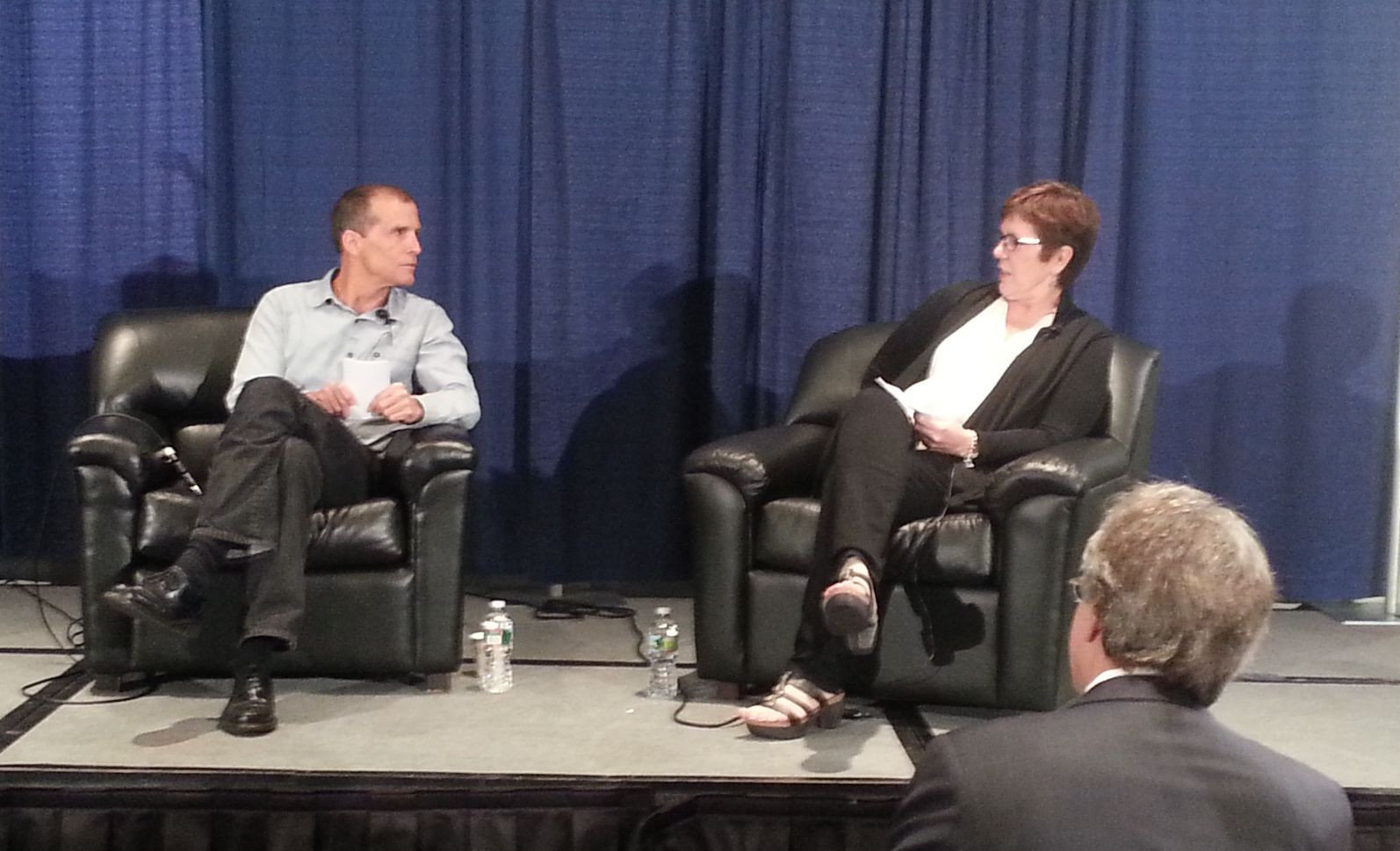John Sargent is a lean man who could be north of fifty, yet dresses and moves like a dude just south of that tetchy line of demarcation sealing a nervous breakdown. He has closely cropped hair with the soft beginnings of gray gently cloaking around a neat skull. He looks a bit like the Christopher Eccleston incarnation of the Doctor. He doesn’t wear leather but he dons muted jeans and a trim light blue dress shirt. He is the CEO of Macmillan and he is something of a maverick, simply for having the gumption to stand up to the Department of Justice. He is here on Wednesday morning to inspire booksellers gathered in a basement room of Jacob Javits Convention Center.
“It is dangerous for us as an industry if everyone lives under a pall of the Department of Justice,” says Sargent. And he means it. This is the man who famously stood up for the agency model as publishers were under fire by that august authority for alleged collusion and price fixing. Sargent was forced to settle for $26 million and the agreement with the DOJ expires on December 2014. (When asked by ABA President Becky Anderson if he would move back for the agency model in 2015, he did not wish to discuss future strategy.) But he’s willing to speak his mind at a trade show if it means firing up a few uncertain souls. And if that means calling the DOJ “extraordinarily myopic” to win some applause, he’ll do it. Even though he’s due to testify next week in the ongoing trial.
He tells the audience that he doesn’t do interviews and that quietude is his natural inclination. Elaborating on this, he says, “I put myself in other people’s shoes who aren’t in the middle of it each day.” But if you look at his feet, you won’t find sneakers.
“I have a great fear of what I think of as the victim effect,” says Sergant when he talks about what he owes the community of booksellers. Under the terms of the settlement, he is not allowed to discuss price. But he can discuss piracy, which makes him feel “pretty bad,” but that he sees as a mild scourge as best. He famously made digital editions of Tor Books DRM-free and it hasn’t hurt his business. He’s quick to point out on Wednesday morning that despite “an explosion of screens,” “the growth of e-books is pretty much pegged.” Macmillan sees 33% of its business goes to e-books; the remaining 66% holds with print. He compliments booksellers on being superb at reacting to “cataclysmic change.” “You guys adjust to that,” he says. “What you need is some time to adjust.”
But the booksellers are watching Sargent for something more than knowledge. They see Sargent, a man who likes to splay his fingers and slice his hands through the air to articulate points, as something of a cowboy. And Sargent lives up to this image with the big square buckle, which looks as if it’s been plundered from the closest thing Manhattan has to a dude ranch. Sargent’s regaling his points from a pad that’s not quite as big as a yellow legal pad but not as small as a memo pad, a clean metaphor for the tone you need to hit when you’re playing a slightly recalcitrant libretto.
But make no mistake: Sargent will follow the consumer’s desires. For all his charisma and his refreshing candor (rare in an industry that is spearheaded by introverts who can sometimes be dry and inarticulate before a large crowd), if the industry were to shift entirely to digital, then Macmillan would veer that very direction. What’s holding Sargent back from extreme digital adoption (rather than highly competent adaption) are sensibilities that he defines as “old-fashioned.” Sargent has been hesitant to release YA books in digital format. As he puts it, “There is something pretty magical about a kid sitting on your lap and reading a book.” He is not a guy who returns home and looks at a screen. And it could be these emblematic 20th century qualities that make him a draw.
Sargent points out that he answers every question he gets on a card, no matter how tough. And he is unafraid to point out certain prejudicial observations, such as the fact that the only people in Congress who want to talk with him are representatives from New York. Publishing is, after all, based here.
But even though Sargent’s talk purports to cover “the whole damn thing,” it’s really more about the innocuous modifier than the noun enchilada. Much as Richard Russo revved up the booksellers last year, Sargent is the confident patriarch encouraging booksellers to shout “damn” in a crowded bookstore.
